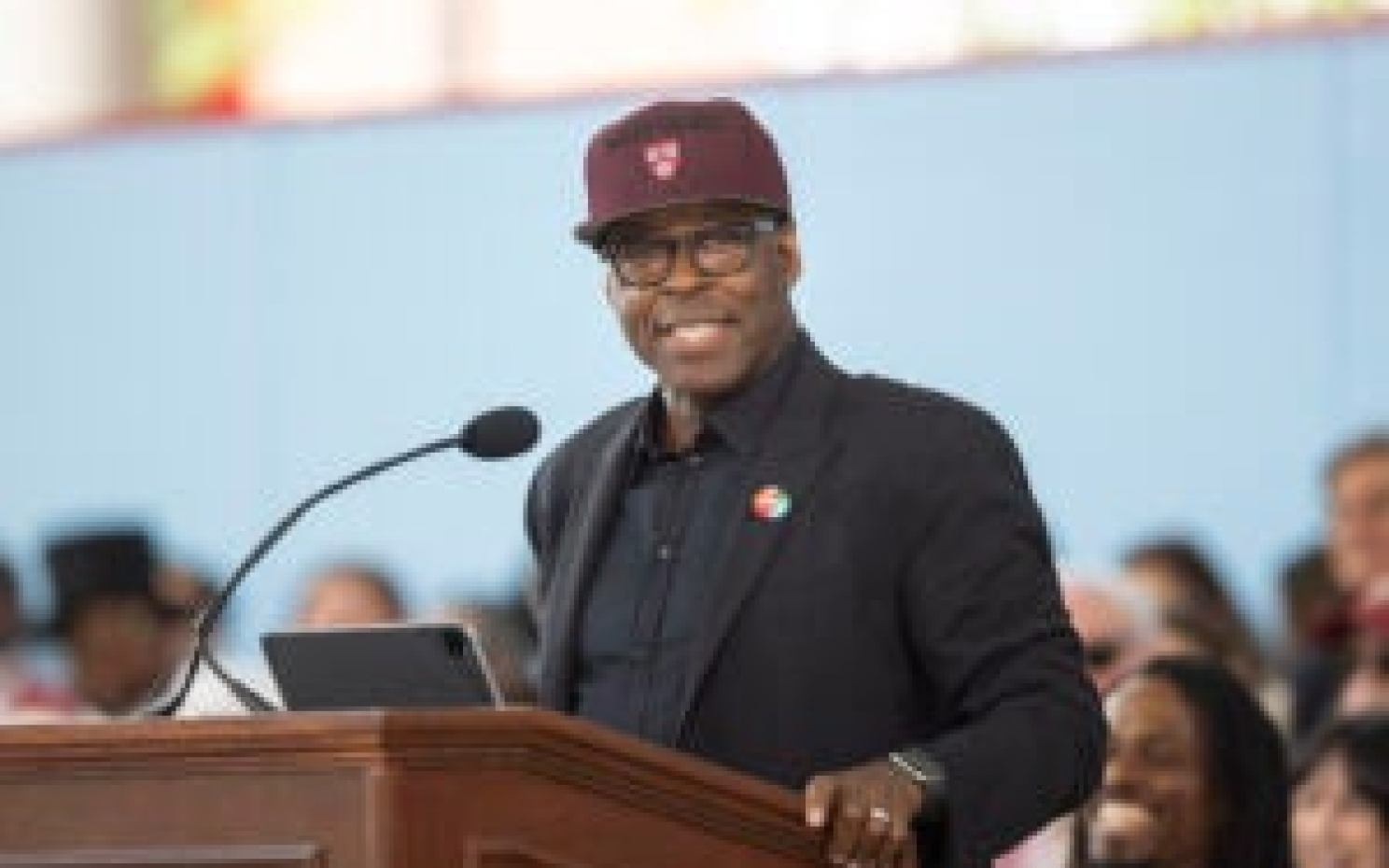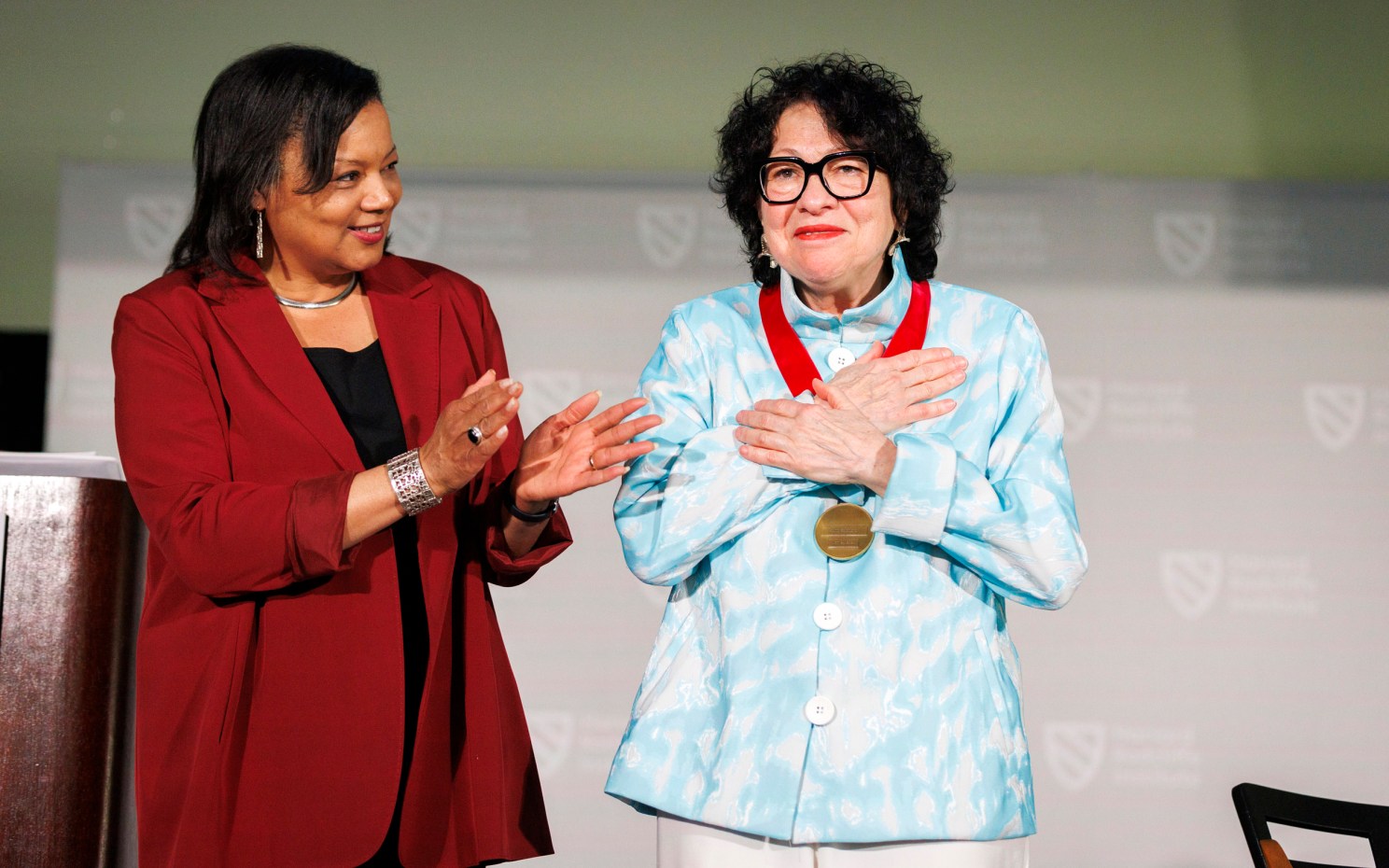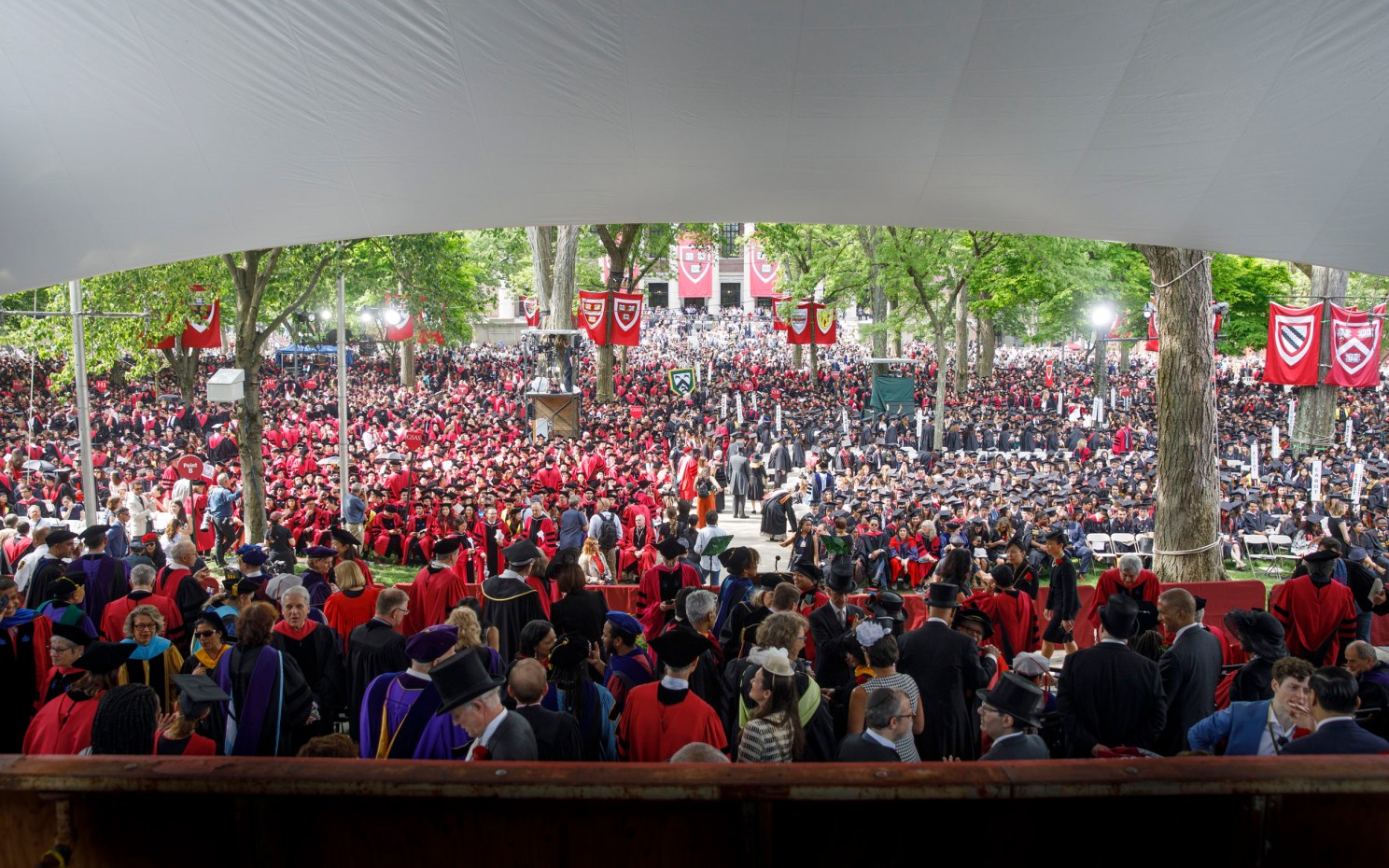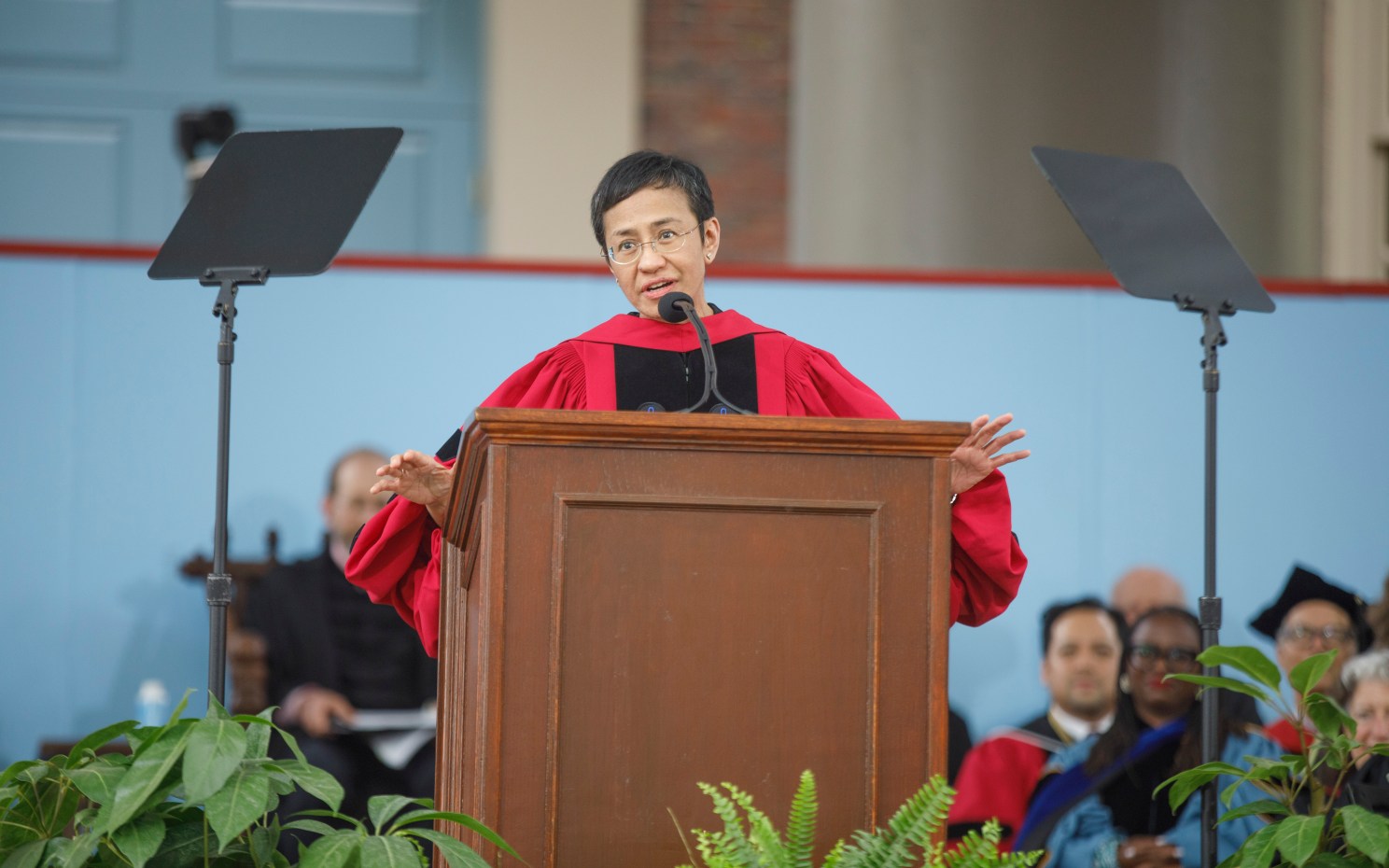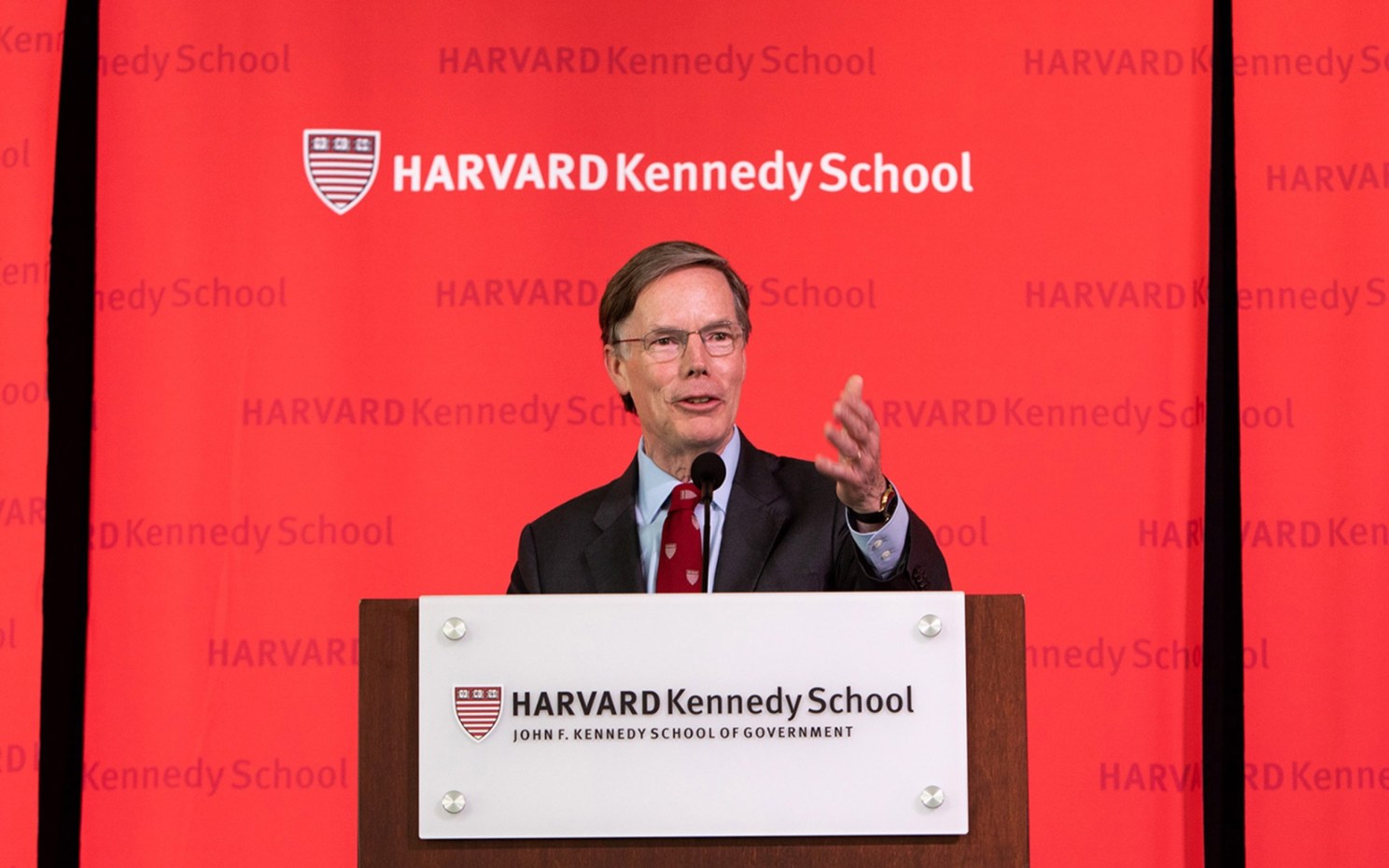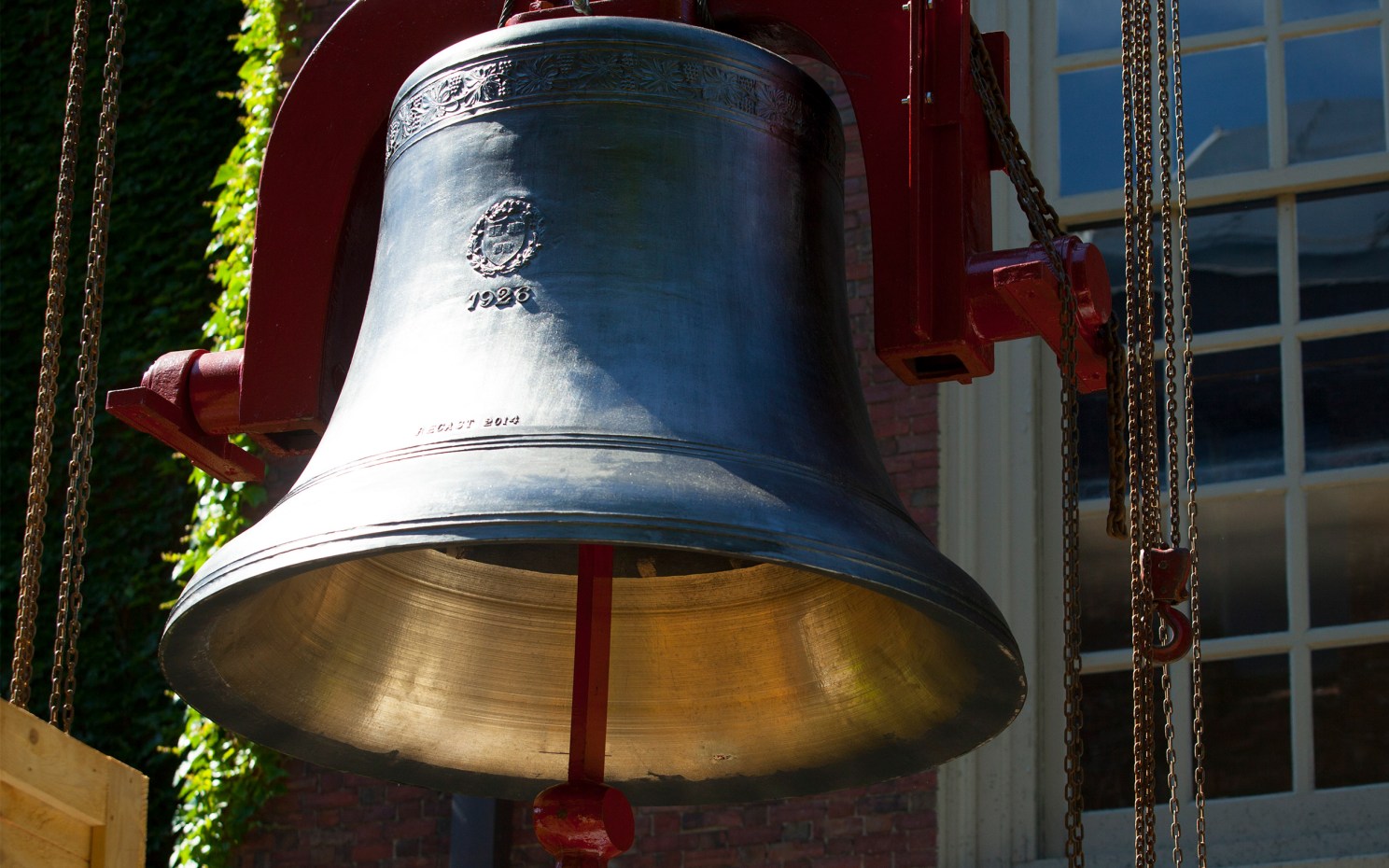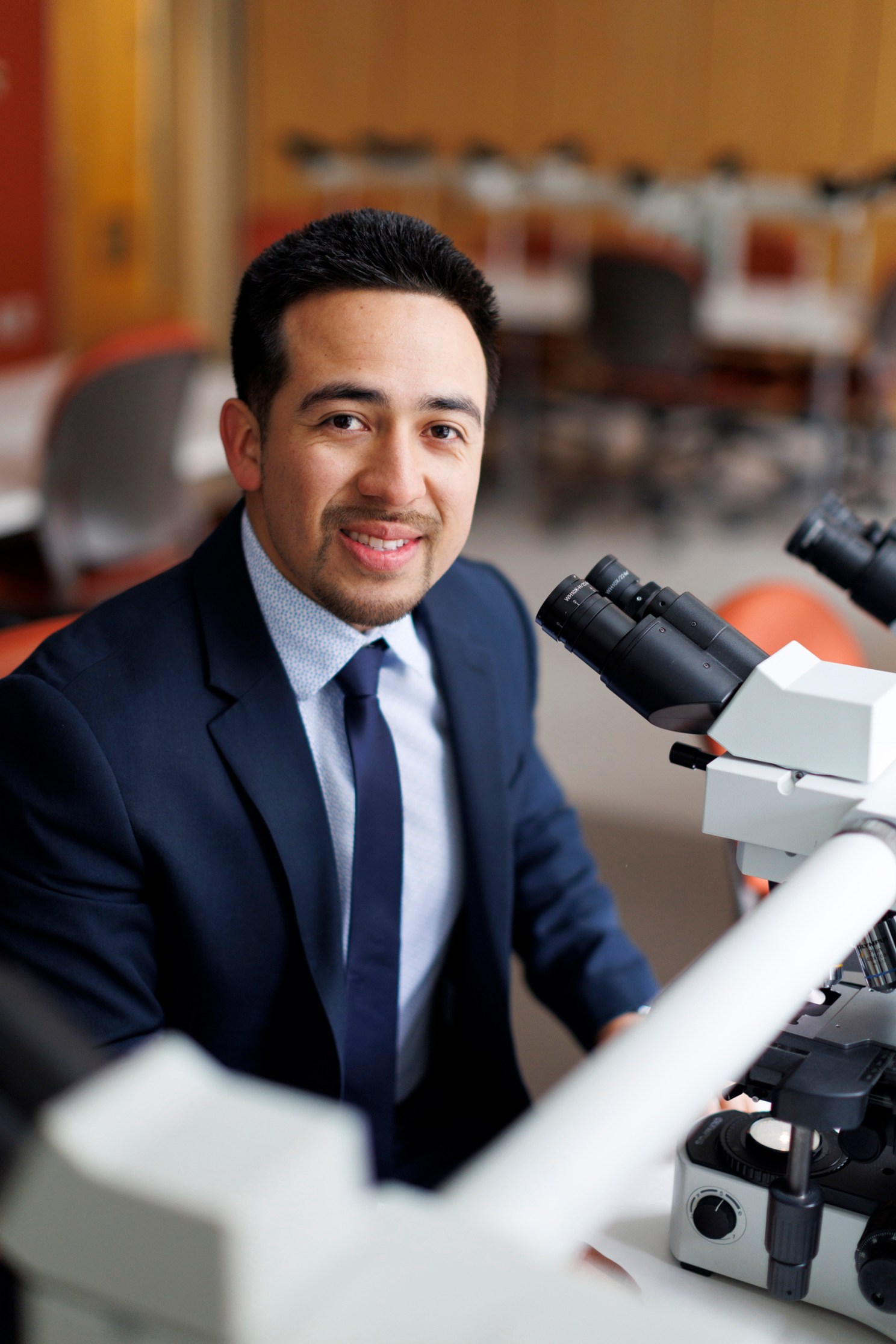
Stephanie Mitchell/Harvard Staff Photographer
Bringing personal perspective to homeless care
Soon-to-be Med School grad’s family struggled in U.S. after fleeing war-torn Central America. He hasn’t forgotten.
Part of the Commencement 2024 series
A collection of stories covering Harvard University’s 373rd Commencement.
In 2019, when David Velasquez heard that Massachusetts General Hospital was convening a working group on homelessness among its patient population, he wanted to help.
Alister Martin, an MGH Emergency Department resident, welcomed Velasquez, telling him there was plenty of work to go around and any willing hands were welcome. But as he listened to Velasquez’s story, Martin realized his new colleague not only brought passion to a tangled, societal-scale problem, but also valuable perspective: No one had to explain the challenges of poverty and homelessness to him.
“He told me his story, how he had struggled with homelessness. It was clear this was not just an academic issue to him,” said Martin, today an assistant professor of emergency medicine at Harvard Medical School. “It was clear. This is a guy coming in for the right reasons.”
Velasquez grew up in Southern California, the son of asylum seekers from war-torn Central America. He is graduating from the Medical School this spring after seven years on Harvard’s campuses. The first of his family to go to college, Velasquez was not satisfied with a single Harvard degree, or even two — he took a break between his third and fourth years at HMS to earn a master’s degree in public policy from the Harvard Kennedy School and one in business administration from Harvard Business School. The dual degrees, he said, are tools to extend his medical career beyond the clinic into policy and business with the aim of reforming a healthcare system too often inaccessible to those on society’s fringes.
When asked about his childhood, Velasquez describes a setting quite distant from the white marble and granite of the HMS quadrangle in Boston.
When his family arrived in the U.S. in 1993, they lived for a year in an East Los Angeles church that welcomed undocumented immigrants. Velasquez was born after that time, but his parents still struggled financially, limited by elementary school educations to low-paying jobs.
Velasquez remembers the family losing their home in 2009 and the six of them — his parents, three brothers, and himself — living in a motel. He also remembers his father standing outside a Southern California Home Depot in hopes a contractor would give him a day’s work and his mother, whom he counts as one of his heroes, working constantly cleaning people’s homes.
Despite his parents’ commitment to hard work, money was always short and healthcare a luxury. He recalls his father once making the difficult decision not to take Velasquez’s sick mother to the doctor because he needed the gas to get to work the next day.
Having a son at Harvard hasn’t proven a shield from life’s financial pressures.
In 2019, money ran out and his mother and father had to give up their home and move into a motel for several weeks. Later that same year, his father had a heart attack, which he survived but which generated a $120,000 medical bill.
Velasquez helped the family navigate that difficulty, consulting lawyers in Boston who counseled that they insist the hospital abide by California requirements that its hospitals provide free care to those who can’t afford it. Velasquez flew home after his OB/GYN rotation that year to talk to hospital administrators and handle the paperwork.
“There were many times when my parents got sick, and they never went to the doctor because my dad needed the gas the next day to go to work,” said Velasquez, who in June starts his internal medicine residency at Brigham and Women’s Hospital. “There were neighbors having legs amputated because of uncontrolled diabetes and so forth. That ultimately taught me that there’s a bigger problem here that I need to understand and think about.”
Velasquez’s parents’ journey to the U.S. started in Nicaragua in the late 1970s when his father, at age 19, began fighting against the dictatorial regime of the Somoza family, which had ruled Nicaragua for decades. In 1983, he picked up arms again, joining the Contras in opposition to the Sandinista government, which had taken over.
After the war ended with the 1990 election of Violeta Chamorro, his father left the country out of concerns for his own safety, eventually traveling to Mexico where he met Velasquez’s mother. In 1993, wanting a better future, they came to the U.S. seeking asylum because they were not able to return to Nicaragua. It took eight years, but the request was eventually granted.
Velasquez began college at the University of Southern California, planning to become an engineer. The transition to college was nearly overwhelming, and he wrestled with doubts, considering dropping out during his first year.
“I almost dropped out of my first semester, not because of academic reasons, but because I didn’t believe in myself,” Velasquez said, adding that he uses that experience today when he talks to students from similar backgrounds. “Kids that come from nontraditional backgrounds don’t necessarily believe in themselves and have confidence in themselves. I often tell students two things: ‘You can do it,’ and ‘but not alone.’”
Velasquez credits his success so far to the support of many around him. In addition to his family, friends, and classmates at Harvard, several mentors — including Martin — have provided valuable examples, opportunities, and advice.
Velasquez reconnected with Martin during the pandemic in GOTVax, an effort to bring COVID-19 vaccines to communities where the need was greatest. Martin was an organizer of the effort, and Velasquez ran its East Boston branch, helping deliver 1,000 vaccines to people in the community.
Later, in 2021-22, when Martin was a White House Fellow, he organized a round table on healthcare access and tapped Velasquez to be the panel’s only student participant.
“He’s incredibly driven and passionate, but underneath he is really warm and funny,” Martin said of Velasquez. “The thing that really surprised me was just how effective he was right off the bat, how people really loved working with him and how well he fit in.”
Velasquez’s mentors haven’t been limited to faculty members. When he was 19 and an intern at Glendale Adventist Medical Center, a nurse named Matt helped him through a key experience: his first time performing CPR on a patient whose heart had stopped and whom they eventually revived.
At just 19, the idea that he could impact someone else’s life in such a profound way nudged Velasquez further from his engineering path and fed a budding interest in medicine.
“The patient comes in — no pulse — and we started CPR. I go second, and we keep going back and forth. He regained a pulse five, seven times and ultimately was resuscitated,” Velasquez said. “I remember coming home and talking with my roommate about how, if I, as a 19-year-old without many skills, could contribute in some way to helping that patient come back to life, how much one could do with the field of medicine?”



